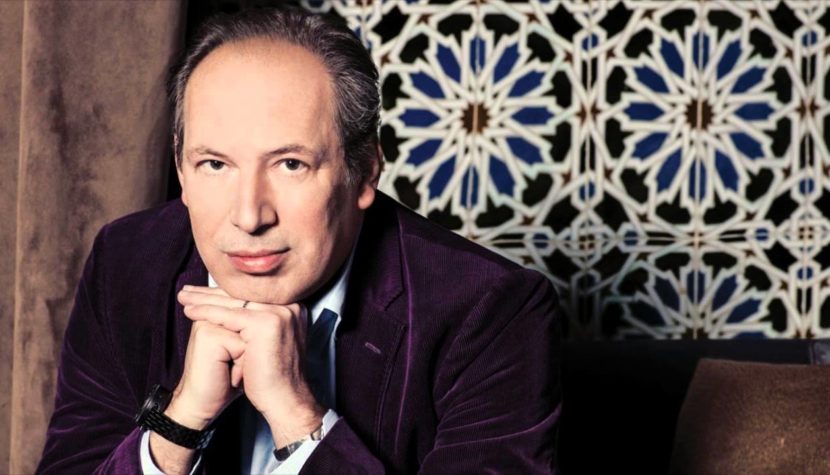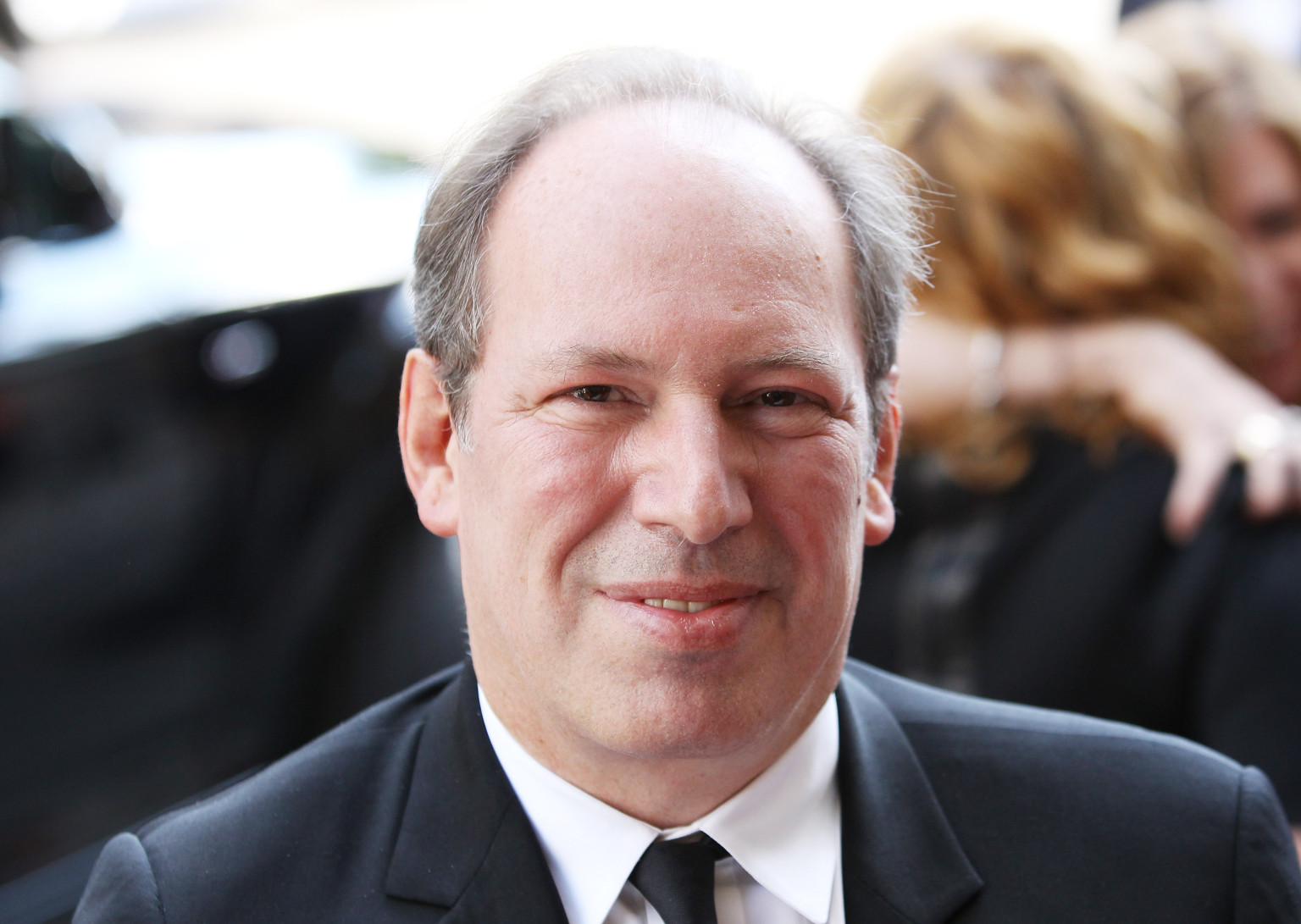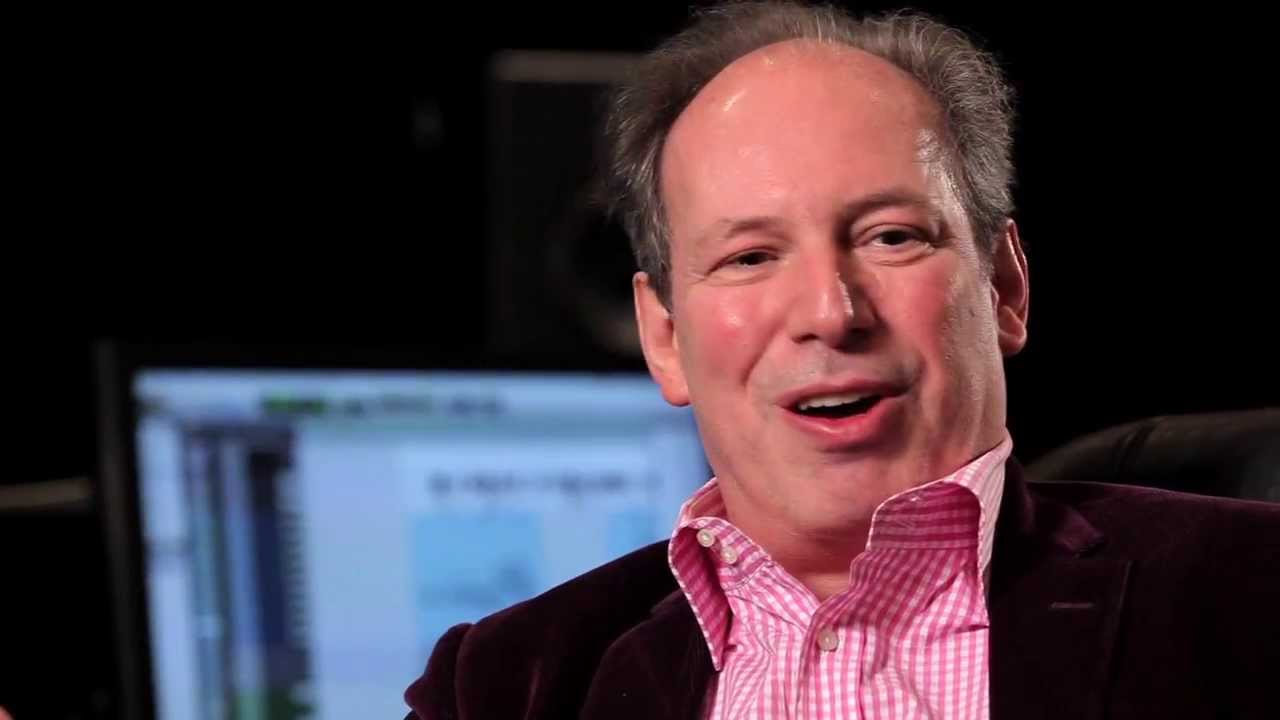FAILURE IS THE ONLY PLACE THAT WE LEARN SOMETHING FROM. Interview with Hans Zimmer

I told myself once that if I ever interview Hans Zimmer, I will ask him: how does he do it? How does he manage to compose so much film music and dazzle everyone with every bit of it?
How do I do it? It’s very simple – you start with a blank page and it gives you panic and fear. And you have a deadline that you have to meet, so there are two forces fighting with each other and hopefully somewhere in between you will get an idea. And the you just don’t sleep (laughs). You know, the difference between a blank page and having something on the page is work.
And ideas.
The abstract of the idea is not that complicated and in most cases comes from sitting there and speaking to the director. „Tell me the story” – this is how I start. Instead of reading the script I prefer to have a conversation with the director, because then I know what is important to him. There are many ways of telling a story and words on the page are still only abstracts. There are only an instruction manual for you to know when to hit certain points to make the thing tick. And even then we find out that what we thought was important turns out to be irrelevant, while some tiny details prove to be crucial.
How do you manage to avoid too many inspirations? I for example restrain myself from reading reviews, because I am afraid that it might cloud my judgement.
Oh, my judgement gets clouded all the time! But the great thing is I am surrounded by musicians – in my studio, on the stage, etc. I worked with these people on so many different movies, so they are very helpful in telling me when the music is terrible, and my music editor is a very wise man, and very ironic at that, so I get beaten up a lot in the studio (laughs). And I am not afraid that I might get inspired too much – they wouldn’t let me.
And coming back to the conversations you have with directors – I know that when working with Terrence Malick on Thin Red Line you haven’t seen the film at all. He approached you before even starting making the movie.
Oh yes, we worked for a year together before he started shooting.

Was it more convenient for you to work that way?
It was much easier, because I think every director in a funny way expects me to have a piece of music which can autonomously stand on its own two feet. It’s not about serving the movie, it’s about enhancing the movie. It’s bringing something into the movie that the director couldn’t think of. And funny enough Terry and I never talked about the scenes or the movie – we talked about philosophy, paintings, all other things. I didn’t have to write what was in those scenes – I had to write what was NOT in those scenes, the things that he couldn’t elegantly express in words and pictures.
Does a composer feel responsible for the success or failure of a film he scored?
Not for a film’s success or its failure, but you feel responsible towards your brothers and sisters who are working on it. There is an intense sense of family on good movies, because everybody works crazy hours, everybody does the impossible, everybody knows that the only way we can get to the next idea is if we support each other in failure. Failure is the only place that we learn something from. Everybody supports everybody else in having the courage to fail and being daring, trying things which nobody has ever tried before. It’s a very intense and unusual life on every movie. Ironically, it’s a very selfish life, because working on a movie is the only thing that matters at that moment in time.
Besides collaborations with other composers, you worked with many musicians not directly connected to film scoring industry. How did you approach these collaborations?
I never think about it. If you sit down with Junkie XL, he is one of the greatest storytellers in the world and all I am looking for are storytellers. With Pete Haycock it was different – I was a fan of his when I was a teenager and I think all my life I wanted to do something with Pete Haycock. So when Thelma & Louise came along I told Ridley: ”I want to work with this guy from Birmingham” and he completely understood. He knew that this was the best way to go with this movie and this is how we got Thunderbird.
Is there a genre of cinema that you particularly like working in? Do you feel more satisfaction from scoring, say, war movies than dramas based on relationships?
Not really. You know, the greatest war movies are relationship movies. The most intense confrontations happen in a Jim Brooks movie – those are real wars! I pick things because they interest me at that moment in time and there are many things that interest me, that move me. Sometimes it’s not even the story – sometimes it’s the style, the cinematography, the poetry, sometimes it’s the opportunity for me to get something out of my system.

Is there any particular project you regret not saying YES to? On the other hand, is there a kind of project you would definitely reject?
I did a couple of very violent video games, like Call of Duty, and I don’t want to do that anymore.
And you said the same about superhero movies.
Yes, because I just don’t know what to say in them anymore. I mean, I spent 12 years with Chris Nolan writing about Batman and then he talked me into doing Man of Steel, which was a movie about Superman. That was still just about OK. But then the next film was Batman v Superman and now I have a new actor as Batman – I’m not saying anything about Ben, because I think he did a fantastic job – and in a peculiar way I felt I was betraying everything I’d written for Christian Bale. And then there was Wonder Woman in the Batman v Superman movie and I started to ask myself “Is that going to be my life now?”. I used to keep things diversified – I did Black Rain and Driving Miss Daisy the same year and they couldn’t be more different, so I didn’t want to get stuck. I think it’s very important for me to say: “Hang on a second guys, give me a break here”. I said that I don’t want to do any more superhero movies and Ron Howard corrected me in a beautiful way because of course he’s smarter than me, saying: “Don’t ever say you don’t want to do superhero movies again because suddenly a script will land in front of you and you’ll go: »Wow, nobody ever thought of doing a superhero movie this way!«”. You have to go for the great story, but don’t ever try doing anything you cannot relate to. You have to be relevant – it’s funny that I’m nearly 60 years old and I manage write music that is relevant to 15-year-olds.
One of the ways to be relevant is to make research. What is the most distant or exotic location you travelled to in order to find inspiration for your music?
South Africa, town shipments in the middle of Johannesburg where we weren’t allowed to be. Travelling around Slovakia, going from Roma camp to another, finding great musicians for Sherlock Holmes. Some locations are less exotic, but nonetheless inspiring, like Florence, where I spent A LOT of time for Hannibal. We spent some time in Paris to find inspiration for Da Vinci Code. And then there was the most unglamorous – Pinewood Studios in London in the middle of winter, where we worked on the music for Thelma & Louise, watching scenes of the blazing sun in the desert, which was definitely not the right way to do it.
You worked with dozens of famous directors. I wonder if there ever was a situation in which you thought: “Why the hell did I say ‘yes’ to that guy?”.
No, because you learn something from everybody. The other thing is I like directors who give me complete freedom. For instance, you can say that the movies I made with John Badham, like Point of No Return or Drop Zone, are not masterpieces, but he never expected us to do art – he expected us to do something entertaining. I think this is good, because for most of our audience life is tough, they work very hard to earn their money and it gets harder and harder every day. And come the weekend they have a choice and if their choice is to come and see a movie, I want all of us to work as hard as possible to give them some sort of experience and to make this hard-earned money worth it. I want them to spend two hours in the cinema and leave satisfied.

